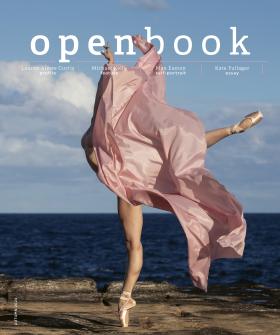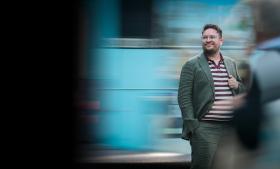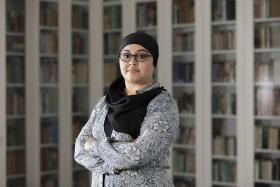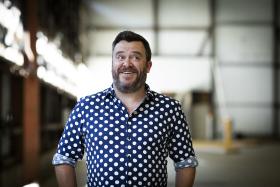Jamie Marina Lau is talking to me from her apartment in Melbourne, explaining how she got out of Hong Kong during the protests in mid-2019. ‘I remember on the way to the airport seeing people lining up — lines of protestors.’ The day she left, someone had died either jumping or falling from a ridge.
When she arrived back in Australia, Lau went straight into self-imposed isolation for almost three weeks at an artist’s studio residency in Carlton, Melbourne. When she came out at the end of that time, she had a draft of her second novel, Gunk Baby, which has just been published by Hachette.
Lau’s first novel, Pink Mountain on Locust Island, was a knockout debut. Fizzing and popping with the texture of Chinatown, its neon signs and internet jargon sat above a sinister and uncomfortable subplot involving drugs and fraud. It was shortlisted for four major prizes in 2019, including the Stella Prize.
I remember interviewing Lau about that first book and being bowled over by hearing she’d written the first draft for it in a short, crazy burst of a couple of months, when she was just 19. Gunk Baby appears to have been born of a similar state.
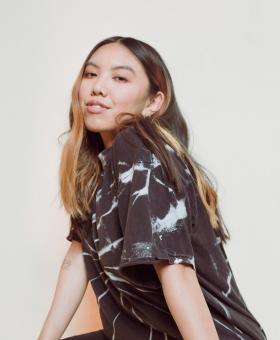
She had gone in with some pieces of a previous work and a few mental images — the character of Leen, whom we meet in Gunk Baby, and her car on a highway — and after the residency it was a ‘really rough first draft, the skeleton of the story’.
Only in hindsight does Lau see the connection between her time in Hong Kong and the themes that emerge in the novel. Leen, the protagonist, has spent a childhood moving between cities. She decides to open a healing studio in the (fictional) Par Mars Topic Heights shopping complex where she will offer ear-cleaning, an ancient Chinese practice that she learned from her mother.
The book has multiple layers of criticism and critique. The most obvious targets are the consumerism and waste — Leen makes some new friends who are in a quasi-socialist online forum of people who want to ‘disrupt’ capitalism. More insidious and dangerous is the emergence of security and policing strategies in the mall, and the troubling larger questions around who or what police are ‘protecting ’ in any setting.
Growing up in suburban Australia, Lau says, she always felt safer in shopping centres than in the streets. There was something reassuring about being under surveillance. But when she thought about it later, she realised that the security was there to protect the merchandise, and the promise of the place, not the human beings inside it.
In Hong Kong, Lau had visited an old British colonial police station that had been transformed into an art museum. She had travelled to Hong Kong almost every year over the past decade, and had seen the city grow and change, but at the museum she learned more about its contested history and discriminatory policing. She was reminded that her brother, who has a shaved head and ‘looks Westernised’, was frequently targeted by the police when they visited.
Compounding these reflections was the Black Lives Matter movement, which hit mainstream Australia just as Lau was editing the novel. ‘I remember having a lot of resources to read, obviously, about abolition,’ she says of mid-2020, ‘and it felt like everything sort of came together, about what I was trying to say on a deeper level about the society we live in.’ A crucial source of ideas for Lau was Carceral Capitalism by Jackie Wang. Gunk Baby takes an idea like Neighbourhood Watch and asks whether its purpose is to encourage community-minded helpers or give everyone the opportunity to act like a cop.
Lau’s creativity extends from prose to music, but she says the two practices tend to ‘butt heads’. ‘They really don’t like each other. I think it’s the constant, sort of, crisis I have. I feel like if I wasn’t a novel writer, I could write more music.’
When I push her to articulate this tension, and why it seems like the writing is currently winning the competition, something very interesting emerges: ‘Novel writing makes me feel like anything else I create will never be honest.’ She struggles to write lyrics for songs, and prefers producing music.
‘I don’t know if I feel good by the end of a three-minute song, that I’ve encapsulated everything I want to say,’ she tells me. ‘Whereas with novel writing, I get to deal with all the negative sides as well as the positive. It allows you to see the mind as something which is changing constantly. And it allows you to see certain habits and biases of a character’s mind or your own mind. And it allows you to investigate the idea that opinion is really conditioned, and the world around you conditions the way that you think and the way that you react.’
Despite this conflict, Lau isn’t prepared to stop making music altogether. ‘I still try to do music because I’ve always loved to do music. I get FOMO if I don’t do it. Right now I am sort of dipping my toe into doing film sound-tracking, which is a really great intersection, because it allows you to explore the narrative turns and subvert the narrative turns and I really like how they intersect in that.’ Both her books so far use a first-person, stream-of-consciousness style that rockets along from plot point to plot point, engulfing the reader in a sensory overload. Lau says she likes this form ‘because I feel like it helps me understand how I think.’
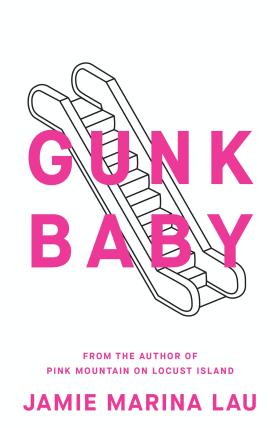
She reflects on when she feels that she belongs and when she feels alien in these spaces, and broadens that gaze to society and consumers, and the connection between spending and belonging.
Using her writing to further her own thinking is something she has experienced more intensely since having been in lockdown in Melbourne during 2020. ‘I feel like my priorities are really different now,’ she explains. ‘I feel like I still trust the idea that storytelling is a really key element in demanding change and participating in change. But I feel like I don’t want to force that unless it’s necessary.’
Overwhelmed by the enormity of the issues our society is facing, Lau thinks more about whether she wants to add her voice and opinions to the mix. ‘I feel like you would never guess that I do a lot of research behind my books,’ she says, ‘because I write everything in a really dreamy, nostalgic way. But it’s more to figure out how I think, and I really enjoy the research part of it. I almost feel like there’s an information overload right now. Like I have so much that I actually just want to work through by myself without reflecting that into another parallel universe.’
In other words, there is still work for books to do, but as a writer she is growing more cautious about when to listen and when to speak. What helps and what harms? When I tell her I’m always wary of ‘contributing to the noise, rather than actually making a contribution,’ she replies, ‘Yes! That’s exactly it. That’s what I feel ... But it’s also necessary. Some people really respond to being told what others think, and then analysing that. But others need to get the ideas subtly fed into their lives, through movies or even documentaries, like, with story and narrative. And so I feel like both are important.’
For her, a critical part of the writing process is conversation and communication with others. ‘Talking to people is the best part of my job as a writer,’ she says. But she finds talking about her own work challenging.
‘It’s so monetised and it’s so glamorised, the idea of doing anything these days successfully, or having a book published or having the platform to make a film, or having a platform to have your music heard ... it almost feels really repulsive, because that genuine longing to talk to people and communicate in the form of fiction is kind of lost in all that noise and publicity.’ She doesn’t like how much the creative world has taken on the markers of the celebrity world — the idolising and the pedestals.
More than this, Lau appears uneasy taking ownership of her own creations, saying it’s ‘really difficult’ to identify herself with the name on the covers of her works. We finally get to a point where I think I understand her approach to writing and creativity: she feels more like a vessel than an author-god; ideas and conversations flow through her and she reshapes them into a particular form. ‘Vessel is the perfect word!’ she says. ‘I used to genuinely believe that, because I grew up in like a very spiritual home. So when I wrote, I felt like it was a break for me. Like, I could be somewhere else.’
Gunk Baby is no exception. When we speak Lau has some events coming up at Sydney Writers’ Festival, including a workshop she’ll be running, and she says she’s ‘really nervous’ about it.
I’m reminded of how our society asks — and indeed expects — our writers to also be speakers and performers. Yet when we hear stories like Lau’s — of an author locking herself away in isolation to make incredible work — we love it. The publicity machine seems to want all fiction to explore critical contemporary social issues. It wants exciting new voices to sell their identities. It wants younger and younger geniuses.
Lau manages to offer all these things, but it’s on her own terms. The book itself resists easy categorisation. It has sex and drugs and humour, while it plays with language and abstract ideas. It offers both a surreal and hyper-real reading experience. I’m thrilled Gunk Baby is being published by Orion Books overseas. I don’t know what ‘Australian literature’ is supposed to be right now, but if more people out there are reading Lau, it will reflect mightily highly on the rest of us.
Bri Lee is the author of the award-winning Eggshell Skull, the essay Beauty, and the newly published Who Gets to Be Smart. She hosts the monthly B List book club at the State Library of NSW.
Gunk Baby can be purchased at the Library Shop.
This story appears in Openbook winter 2021.

